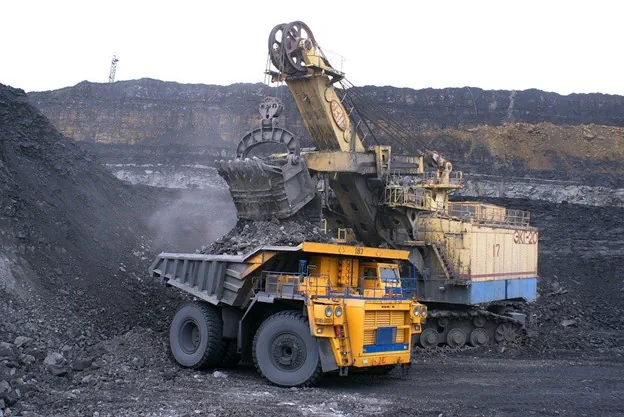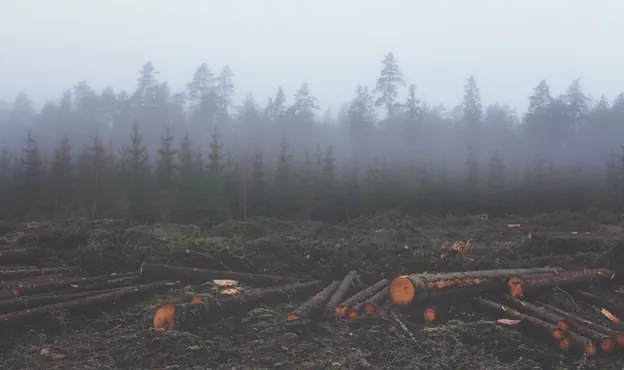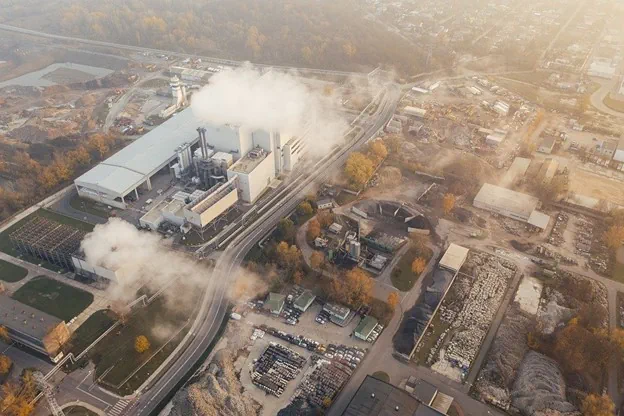
Consequences Of Overexploitation Of Natural Resources

Table of Contents
Introduction
Since the beginning of life, humans have exploited natural resources for the materials required to sustain life. That primarily includes food production and economic sustenance, although other substances are also extracted from the natural environment. However, human exploitation of natural ecosystems has long-lasting effects on the future provision of resources and other ecosystem services.
Degraded ecosystems take time to recover from overexploitation, while some might never bounce back even when exploitation stops. That might adversely impact the availability of resources like clean air, food, and other services, ultimately threatening human existence. Unfortunately, most countries struggle to guarantee the long-term use of natural resources at minimal environmental cost while guaranteeing social and economic development.

Coal & mineral mining a major contributor to over exploitation of resources - Image from Pixabay
What Are Natural Resources?
Natural resources refer to anything that our planet offers without human intervention. They essentially guarantee our survival on earth, but they can be exhausted if used at a faster rate than they regenerate. These resources can be renewable or non-renewable.
Renewable resources are hard to exhaust as their regeneration is rapid. Examples include things like solar radiation, geothermal energy, biomass, wind, and hydropower. On the other hand, non-renewable resources are limited in nature, and their regeneration might take a very long time. Examples of non-renewable resources include natural gas, coal, fossil fuel, and minerals.
How Fast Are Humans Depleting Natural Resources?
According to the National History Museum, the earth’s population has almost doubled since the 70s, with the consumption of natural resources increasing by 45% per capita. Fortunately, the world is designed in a way that maximizes the flow of natural resources to meet the growing human demand for resources. However, research shows that humans are depleting natural ecosystems at 1.7 times faster than the earth’s regeneration rate, and the rate is growing steadily.
Considering the rate at which human beings are depleting natural resources, the Worldwide Fund (WWF) warns that natural resources and living standards will start declining by 2030 if immediate action isn’t taken. The WWF also warns that humans will need 2.5 earth to satisfy our growing demand for resources by 2050. That means it will take earth two and a half years to produce the resources used in a single year. That’s a significant increase considering that humanity is currently using approximately 1.6 earths to supply its population with the required resources. At the current rate, it takes earth approximately a year and eight months to regenerate the resources extracted every year to satisfy our demand. Already, we’re using more ecological resources than nature can regenerate in different ways.
Reasons for Overexploitation of Natural Resources
1. Overpopulation
Over 7.8 billion people are living on the planet today. This population is consistently increasing, and that has been a major contributor towards accelerating the exploitation of natural resources. That’s because an increase in population expands the demand for resources and the conditions necessary to sustain life. Additionally, an increase in population leads to increased ecological contamination.
2. Poor Farming Practices
Approximately 1.5 billion hectares (11%) of the world’s land surface is used for crop production. That’s about 36% of the total global land suitable for crop production. While there are still 2.7 billion hectares more that could be used for agricultural purposes, overreliance on land resources for food production could lead to serious issues in the future. Poor irrigation practices are a major contributor to the depletion of land resources. It leads to alkalization and salination of the soil needed for plant growth. The use of heavy farming equipment and machinery and poor soil management practices also destroys the soil structure and makes it unsuitable for growing plants. Other farming practices like the use of excess fungicides, herbicides, and pesticides also kill important micro-organisms in the soil essential for replenishing its nutrients.

Logging is the main cause of forest degradation - Image source: Pixabay - Image from Pixabay
3. Logging
According to the World Bank, the net loss of world forests was 1.3 million square kilometers between 1990 and 2016. At the same time, the loss of tropical forests is estimated to happen at the rate of 1% per year, mainly in Latin America. That’s because people are cutting down forests mainly for agricultural purposes to satisfy the growing population’s demand.
More trees are cure every year for building residential complexes and as a source of fuel. These deforestation activities not only lead to the loss of trees but also hundreds of plants and animals. Even worse, increased logging activities contribute to soil erosion.
4. Pollution
The increase in pullulation and anthropogenic activities contributes to the disposal of different pollutants in the environment, gradually exposing the natural ecosystems to degradation. As a result, the air, soil, seas, and lakes are contaminated with sewage, plastics, radioactive materials, and other toxic chemicals. Additionally, the uncontrolled release of carbon dioxide, carbon monoxide, sulfur oxide, and nitrous oxide leads to global warming and the degradation of our ozone layer.
5. Overconsumption of natural resources
Since the first industrial revolution, which opened the door for the exploitation of oil and minerals, the process has been growing gradually over the centuries. Together with advancements in science and technology in the contemporary era, mineral exploitation has become easier and faster. This increased exploitation rate of different minerals has led to a production decline for some materials. For instance, copper, zinc, and oil are expected to decline significantly in the next decade.
6. Industrial and Technological Development
With major technological breakthroughs, more and more countries are becoming industrialized. However, this technological advancement is giving rise to more industries that exploit natural resources and release toxins into the environment. These toxins are deposited in lands, lakes, and soils, altering natural habitats like wildlife and aquatic systems.
Consequences of Overexploiting Our Natural Resources
1. Water Shortages
Deforestation, poor farming practices, and pollution are three main causes of depletion of water resources because of wastage, contamination, and destruction of water catchment areas. In fact, about a billion people suffer from water shortage due to deforestation and groundwater contamination. That further results in food insecurity and famine.

Industries pollute the environment - Image source: Pixabay
2. Oil Depletion
A non-renewable resource, oil accounts for approximately 40% of the energy used globally. As such, research suggests that the remaining oil deposits might not last for the next three decades, considering the high rate of exploitation. Its depletion will have devastating effects on several industries, as it’s an essential commodity in mining, planting, transportation, and manufacturing.
3. Loss Of Forest Covers
With over 15 million acres of forests destroyed annually, the world’s natural forest cover is now endangered. Even worse, deforestation has increased greenhouse gasses by 12% to 17% over the last three decades. Other devastating effects include loss of biodiversity, soil erosion, and dramatic climate change.
4. Mineral Depletion
With gasoline, zinc, phosphorous, and others being essential ingredients in manufacturing processes, there has been an increase in the exploitation of these minerals in the last decade. However, that has several devastating effects on nature as minerals like Phosphorous are essential for plant growth.
5. Extinction of Species
Because of deforestation and habitat degradation, some animal species are going extinct. That’s because forest regions host thousands of animals, which are endangered by deforestation and exploitation of forest resources. Other practices like lake pollution and overfishing also drastically reduce the number of marine species.
Solutions To Avoid Overexploitation Of Natural Resources
1. Controlling Deforestation
With programs aimed at reducing deforestation becoming more and more popular worldwide, governments are embracing the initiative and passing laws against the exploitation of forests. Some initiatives also work as incentives to encourage the public to participate in forest conservation to protect animal habitats and unique animal & plant species.
2. Reducing the consumption of oil and other minerals
Oil-rich countries, consumables regulatory bodies, and World Bank should join hands and work towards the common goal of reducing oil and mineral consumption worldwide. Manufacturers may also be educated on alternative ways to replace the minerals, while consumers can be sensitized to re-using some products to reduce wastage.
3. Use of Renewable Energy Sources
Renewable energy sources like wind power and solar can reduce the high dependency on fossil fuels. That will positively impact the environment, as fossil fuel is a major contributor to environmental pollution, global warming, climate change, and natural habitat degradation.
4. Sensitization and awareness creation
The public must be educated on how their daily practices strain the environment and result in the degradation of natural resources. Creating awareness makes it easy to encourage people to restore and preserve the natural environment by participating in conservation initiatives and efforts.

: Renewable energy is the future - Pixabay
5. Protecting coastal and Wetland ecosystems
Wetlands are areas with lots of groundwater that sustain vegetation cover. Coastal and wetland ecosystems are therefore crucial in sustaining the food chain because they replenish the food chain and avail the nutrients and minerals necessary for animal and plant biodiversity. Coastal ecosystems also help to protect marine life from overfishing.
Bottom Line
While natural ecosystems are essential for plant and animal growth, overexploitation can lead to severe issues like global warming, food insecurity, climate change, and mineral depletion. For this reason, everyone must work on re-using and recycling some materials while embracing conservation initiatives.